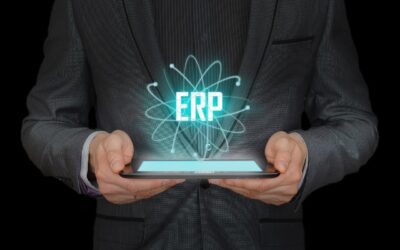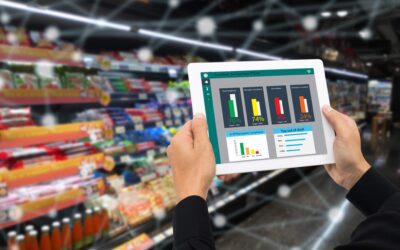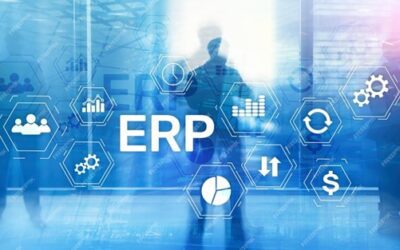
Understanding ERP systems in supply chain management
As businesses continue to expand and globalize, the need for efficient supply chain management becomes increasingly critical. Enterprise Resource Planning (ERP) systems play a pivotal role in streamlining and integrating various business processes, including supply chain management. An ERP system is a comprehensive software solution that allows organizations to manage and automate a wide range of functions, such as inventory control, order processing, and procurement. In the context of supply chain management, ERP systems provide a centralized platform for monitoring and optimizing the flow of goods and information across the entire supply chain network.
One of the fundamental aspects of understanding ERP systems in supply chain management is their ability to facilitate seamless communication and collaboration among different stakeholders. By consolidating data from various departments and business units, an ERP system enables real-time visibility into inventory levels, order status, and production schedules. This level of transparency is essential for making informed decisions and responding promptly to changes in customer demand or market conditions. Furthermore, ERP systems can support strategic planning by providing valuable insights into supply chain performance, supplier relationships, and customer satisfaction.
In today’s dynamic business environment, the integration of emerging technologies, such as artificial intelligence and Internet of Things (IoT), has further enhanced the capabilities of ERP systems in supply chain management. Advanced analytics and predictive modeling embedded within modern ERP solutions enable organizations to forecast demand more accurately, optimize warehouse operations, and mitigate supply chain risks. As a result, businesses can achieve higher levels of agility, cost-efficiency, and customer service, ultimately gaining a competitive edge in the market.
The evolution of ERP systems in supply chain management reflects a shift towards more comprehensive and sophisticated solutions that cater to the diverse needs of modern businesses. By understanding the multifaceted nature of ERP systems and their relevance to supply chain management, organizations can embark on a journey towards operational excellence and sustainable growth.
Common challenges in ERP system implementation
The implementation of an ERP system in the context of supply chain management can be a complex and daunting task for businesses. One of the most common challenges is the resistance to change among employees. Introducing a new system often disrupts established workflows, leading to apprehension and reluctance among staff members. Additionally, data migration and system integration can pose significant challenges, especially when dealing with legacy systems and disparate software applications. Ensuring data accuracy and integrity during the transition is crucial for the success of the implementation process.
Another prevalent challenge is the lack of adequate training and support for end-users. Without proper training, employees may struggle to adapt to the new system, leading to inefficiencies and reduced productivity. Furthermore, the customization and configuration of the ERP system to align with specific supply chain requirements can be a complex undertaking, often requiring extensive time and resources. Overcoming these challenges demands careful planning, effective change management, and a clear understanding of the organization’s unique supply chain needs.
Importance of a robust ERP solution in supply chain management
In the realm of supply chain management, the importance of a robust ERP solution cannot be overstated. An effective ERP system serves as the backbone of supply chain operations, providing real-time insights, automating processes, and facilitating seamless communication across the entire supply chain network. With features such as demand planning, inventory optimization, and order management, a robust ERP solution empowers businesses to respond swiftly to market fluctuations and customer demands.
Moreover, an ERP system offers comprehensive visibility into the entire supply chain, enabling organizations to identify bottlenecks, optimize inventory levels, and improve overall efficiency. By centralizing data and integrating disparate functions, ERP systems enable better decision-making and strategic planning, ultimately leading to enhanced customer satisfaction and competitive advantage. In today’s fast-paced business landscape, the adoption of a robust ERP solution is imperative for organizations seeking to stay ahead of the curve in supply chain management.
The role of Xorosoft ERP in streamlining supply chain operations
As businesses strive to overcome the challenges of ERP system implementation in supply chain management, the role of a reliable and versatile ERP solution like Xorosoft ERP becomes increasingly significant. Xorosoft ERP offers a comprehensive suite of modules specifically designed to address the complexities of supply chain operations. From procurement and inventory management to production planning and distribution, Xorosoft ERP provides a seamless and integrated platform for managing every aspect of the supply chain.
One of the key strengths of Xorosoft ERP lies in its ability to adapt to the unique requirements of different industries and supply chain models. Whether dealing with discrete manufacturing, process manufacturing, or distribution, Xorosoft ERP offers flexible and scalable solutions tailored to the specific needs of each business. By leveraging advanced analytics and reporting capabilities, Xorosoft ERP empowers organizations to gain actionable insights, optimize resource allocation, and drive continuous improvement across the supply chain.
With its user-friendly interface, intuitive dashboards, and mobile accessibility, Xorosoft ERP enables stakeholders to access critical supply chain data anytime, anywhere. The seamless integration of Xorosoft ERP with existing systems and third-party applications further enhances its utility, ensuring a smooth transition and minimal disruption during the implementation process. By choosing Xorosoft ERP, businesses can unlock the full potential of their supply chain and drive sustainable growth and success.
Overcoming inventory management challenges with ERP systems
Inventory management is a critical aspect of supply chain operations, and the implementation of an ERP system can significantly alleviate the challenges associated with it. By integrating inventory management modules, ERP systems like Xorosoft ERP enable businesses to gain real-time visibility into their inventory levels, movements, and replenishment needs. This enhanced visibility helps in optimizing inventory holdings, reducing carrying costs, and minimizing stockouts, ultimately leading to improved customer service levels and operational efficiency.
Moreover, the automation capabilities of ERP systems streamline the entire inventory management process, from procurement to warehousing to order fulfillment. By automating inventory tracking, stock movements, and replenishment triggers, businesses can eliminate manual errors and optimize their inventory control strategies. Furthermore, the integration of demand forecasting and inventory planning modules within Xorosoft ERP empowers organizations to anticipate market demands accurately and align their inventory levels accordingly.
Another significant benefit of ERP systems in inventory management is the ability to implement Just-in-Time (JIT) and lean inventory practices. By synchronizing inventory levels with production schedules and customer demand patterns, businesses can minimize excess inventory holding and reduce wastage. The seamless coordination facilitated by Xorosoft ERP ensures that inventory management becomes a strategic asset, enabling businesses to maintain optimal stock levels while minimizing carrying costs and maximizing operational efficiency.
Enhancing accounting processes through ERP implementation
In addition to streamlining supply chain operations, ERP systems like Xorosoft ERP play a pivotal role in enhancing accounting processes within an organization. Traditionally, accounting tasks such as financial reporting, budgeting, and cost analysis were handled through disparate systems and manual processes, leading to inefficiencies and inaccuracies. However, with the implementation of an integrated ERP system, businesses can centralize their accounting functions and gain comprehensive control over their financial processes.
Xorosoft ERP offers a range of accounting modules that automate and streamline core accounting activities, including general ledger management, accounts payable, accounts receivable, and financial reporting. By consolidating financial data and standardizing accounting practices, Xorosoft ERP empowers organizations to ensure data accuracy, compliance, and transparency in their financial operations. The real-time insights provided by Xorosoft ERP enable stakeholders to make informed financial decisions and drive business growth with confidence.
Furthermore, the integration of accounting modules with other supply chain functions, such as procurement and inventory management, facilitates seamless data flow and reconciliation across the organization. This integration not only reduces the risk of errors and discrepancies but also improves the overall efficiency of accounting processes. By leveraging the advanced reporting and analytics capabilities of Xorosoft ERP, businesses can gain a deeper understanding of their financial performance, identify cost-saving opportunities, and drive profitability across the supply chain.
Key features to look for in an ERP system for supply chain management
When evaluating ERP systems for supply chain management, it is essential to consider a range of key features that are critical for optimizing supply chain operations. Firstly, robust demand forecasting and planning capabilities are crucial for aligning production schedules, inventory levels, and order fulfillment with market demands. An ERP system should offer advanced forecasting algorithms, scenario modeling, and demand sensing capabilities to enable accurate and agile decision-making in response to changing market dynamics.
Secondly, comprehensive inventory management functionalities are essential for maintaining optimal stock levels, minimizing carrying costs, and ensuring on-time order fulfillment. Look for an ERP system, such as Xorosoft ERP, that provides real-time visibility into inventory movements, automated replenishment triggers, and integration with warehouse management systems for efficient stock control. Additionally, features like lot tracking, serial number management, and bin location control enhance the accuracy and traceability of inventory management.
Thirdly, seamless integration with procurement processes is a key feature to consider in an ERP system for supply chain management. The ability to automate procurement workflows, manage supplier relationships, and optimize sourcing strategies within the ERP platform streamlines the entire procurement cycle and ensures cost-effective and timely supply of materials and resources. Furthermore, integration with e-procurement and vendor management systems enhances transparency and efficiency in the procurement process.
Furthermore, advanced order management functionalities, including order processing, fulfillment, and customer relationship management, are essential for delivering exceptional customer service and maintaining high service levels. An ERP system should offer features such as order promising, allocation and scheduling, and customer self-service portals to enhance order accuracy and responsiveness. The seamless integration of order management with inventory and production planning ensures a synchronized and agile order fulfillment process.
Best practices for successful implementation of Xorosoft ERP
The successful implementation of Xorosoft ERP, or any ERP system for that matter, requires adherence to best practices that ensure a smooth transition and maximize the benefits of the software. Firstly, thorough planning and scoping of the implementation project are essential to define clear objectives, timelines, and resource allocations. By conducting a comprehensive business process analysis and identifying key stakeholders, businesses can ensure that the implementation aligns with their specific supply chain requirements and strategic goals.
Secondly, effective change management and communication are critical for managing the transition to Xorosoft ERP. Proactively involving and engaging employees throughout the implementation process, providing adequate training and support, and addressing concerns and feedback fosters a positive attitude towards the new system. Clear communication about the benefits and impact of the ERP system on supply chain operations builds confidence and buy-in from the workforce, leading to smoother adoption and integration.
Furthermore, leveraging the expertise of implementation partners and consultants can significantly enhance the success of the implementation process. Collaborating with experienced professionals who understand the intricacies of supply chain management and the capabilities of Xorosoft ERP ensures that the system is tailored to meet the specific needs of the business. By tapping into the knowledge and best practices of implementation partners, organizations can navigate challenges effectively and achieve a successful ERP implementation.
In addition, conducting thorough testing and validation of the ERP system before going live is crucial for identifying and resolving any issues or discrepancies. This includes data migration validation, system integration testing, and user acceptance testing to ensure that the system performs as expected and meets the business requirements. By conducting pilot runs and simulations, businesses can mitigate risks and ensure a seamless transition to Xorosoft ERP without disrupting supply chain operations.
Leveraging technology for effective supply chain management with Xorosoft
As businesses embrace the digital transformation of supply chain management, leveraging technology becomes indispensable for achieving operational excellence and competitive advantage. Xorosoft ERP offers a plethora of technological capabilities that empower organizations to optimize their supply chain operations and stay ahead in today’s fast-paced business landscape. With its cloud-based architecture, Xorosoft ERP provides scalability, flexibility, and accessibility, enabling businesses to adapt to changing market dynamics and scale their operations seamlessly.
The integration of advanced analytics and business intelligence tools within Xorosoft ERP enables organizations to gain actionable insights from their supply chain data, identify patterns and trends, and make informed decisions. By leveraging predictive analytics, businesses can anticipate market demands, optimize inventory levels, and proactively address supply chain challenges. The real-time visibility and reporting capabilities of Xorosoft ERP provide stakeholders with a comprehensive view of the entire supply chain, facilitating data-driven decision-making and strategic planning.
Furthermore, the mobile accessibility of Xorosoft ERP empowers stakeholders to access critical supply chain data on the go, enabling timely decision-making and responsiveness. Whether on the shop floor, in the warehouse, or in the field, employees can leverage the mobile capabilities of Xorosoft ERP to perform inventory transactions, monitor production schedules, and communicate seamlessly with other supply chain stakeholders. This mobility enhances collaboration and agility within the supply chain, driving operational efficiency and customer satisfaction.
Moreover, the integration capabilities of Xorosoft ERP with emerging technologies such as Internet of Things (IoT), artificial intelligence, and machine learning further enhance its utility in supply chain management. By leveraging IoT sensors for real-time asset tracking, AI algorithms for demand forecasting, and machine learning models for predictive maintenance, Xorosoft ERP enables businesses to embrace Industry 4.0 principles and drive innovation in their supply chain operations. The seamless integration of these technologies with Xorosoft ERP ensures that businesses are well-equipped to navigate the complexities of modern supply chain management.
Conclusion
In conclusion, the implementation of an ERP system in supply chain management presents both challenges and opportunities for businesses. Understanding the intricacies of ERP systems, addressing common implementation challenges, and recognizing the importance of a robust ERP solution are crucial steps towards optimizing supply chain operations. Xorosoft ERP emerges as a versatile and reliable solution for streamlining supply chain processes, overcoming inventory management challenges, and enhancing accounting processes within organizations.
By evaluating key features, adhering to best practices, and leveraging technology, businesses can ensure the successful implementation of Xorosoft ERP and achieve sustainable growth and success in their supply chain operations. The comprehensive suite of modules, user-friendly interface, and integration capabilities make Xorosoft ERP a valuable asset for businesses seeking to navigate the complexities of supply chain management and stay ahead in today’s competitive business landscape.
As businesses embark on their journey towards leveraging the capabilities of Xorosoft ERP, it is imperative to explore the possibilities and benefits that the system offers. I encourage organizations to book a demo with Xorosoft to experience firsthand the transformative impact that an advanced ERP solution can have on their supply chain operations. Embracing the power of Xorosoft ERP is a strategic step towards driving operational excellence, enhancing customer satisfaction, and realizing the full potential of supply chain management in the digital age.









